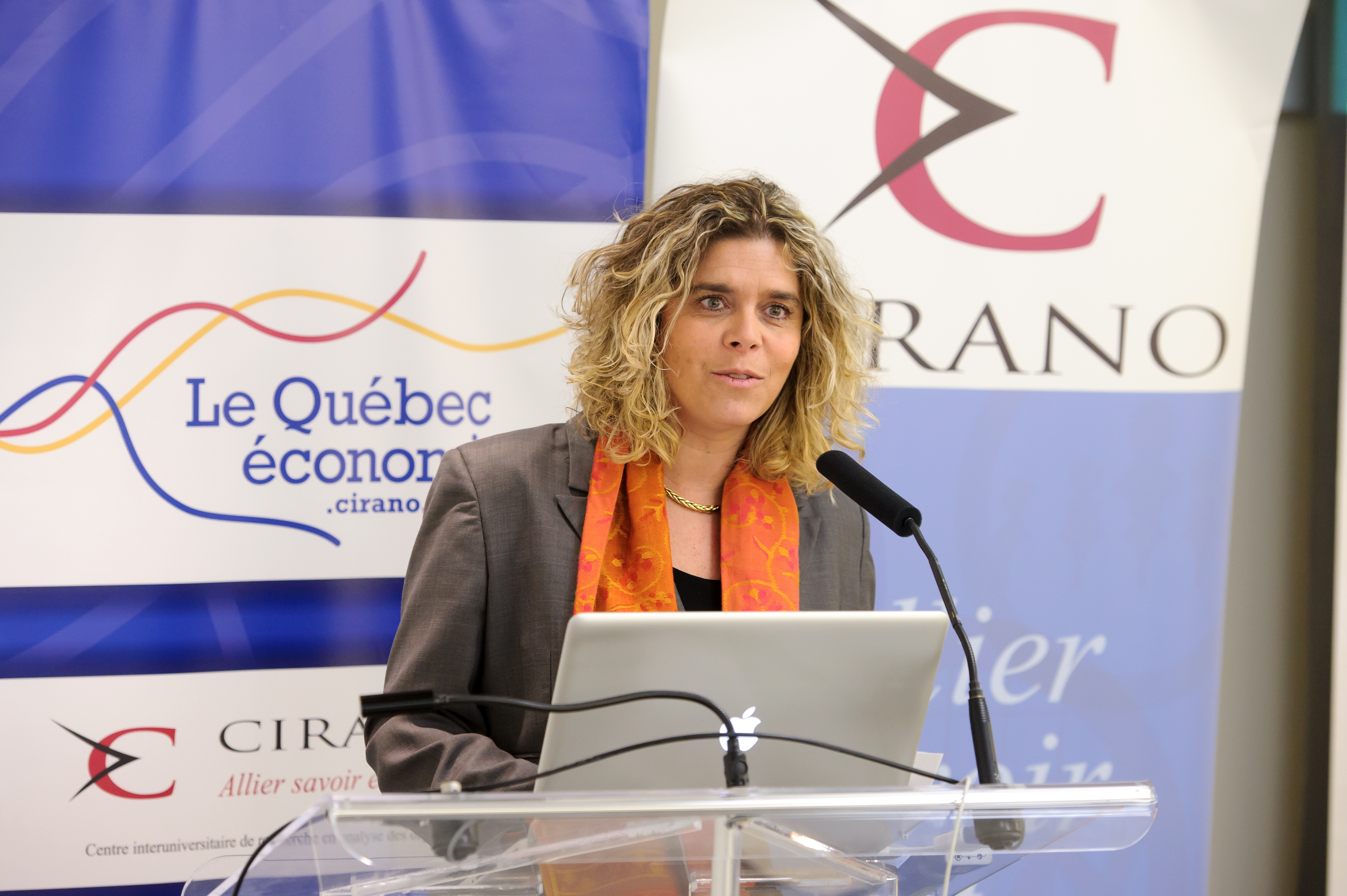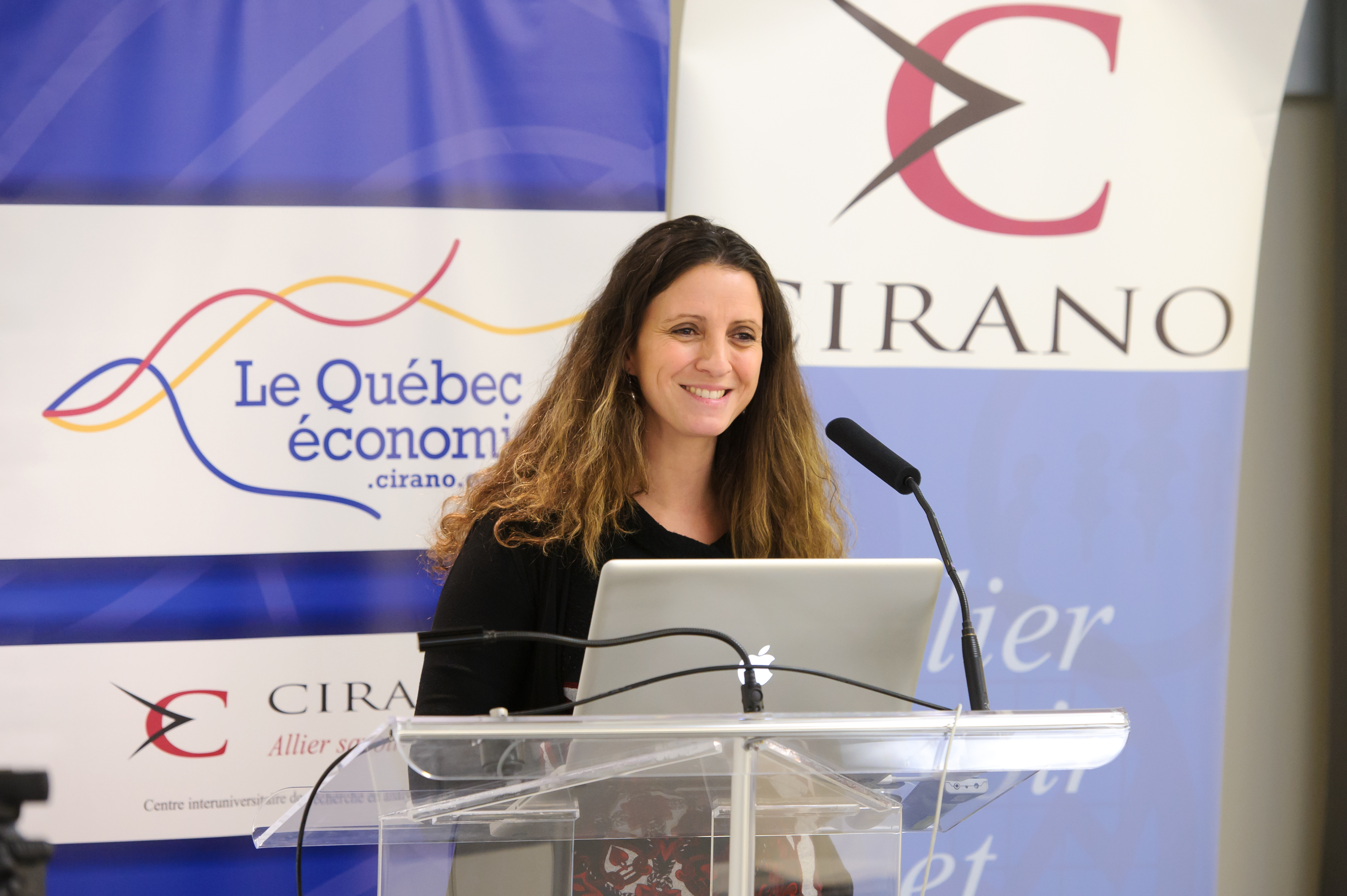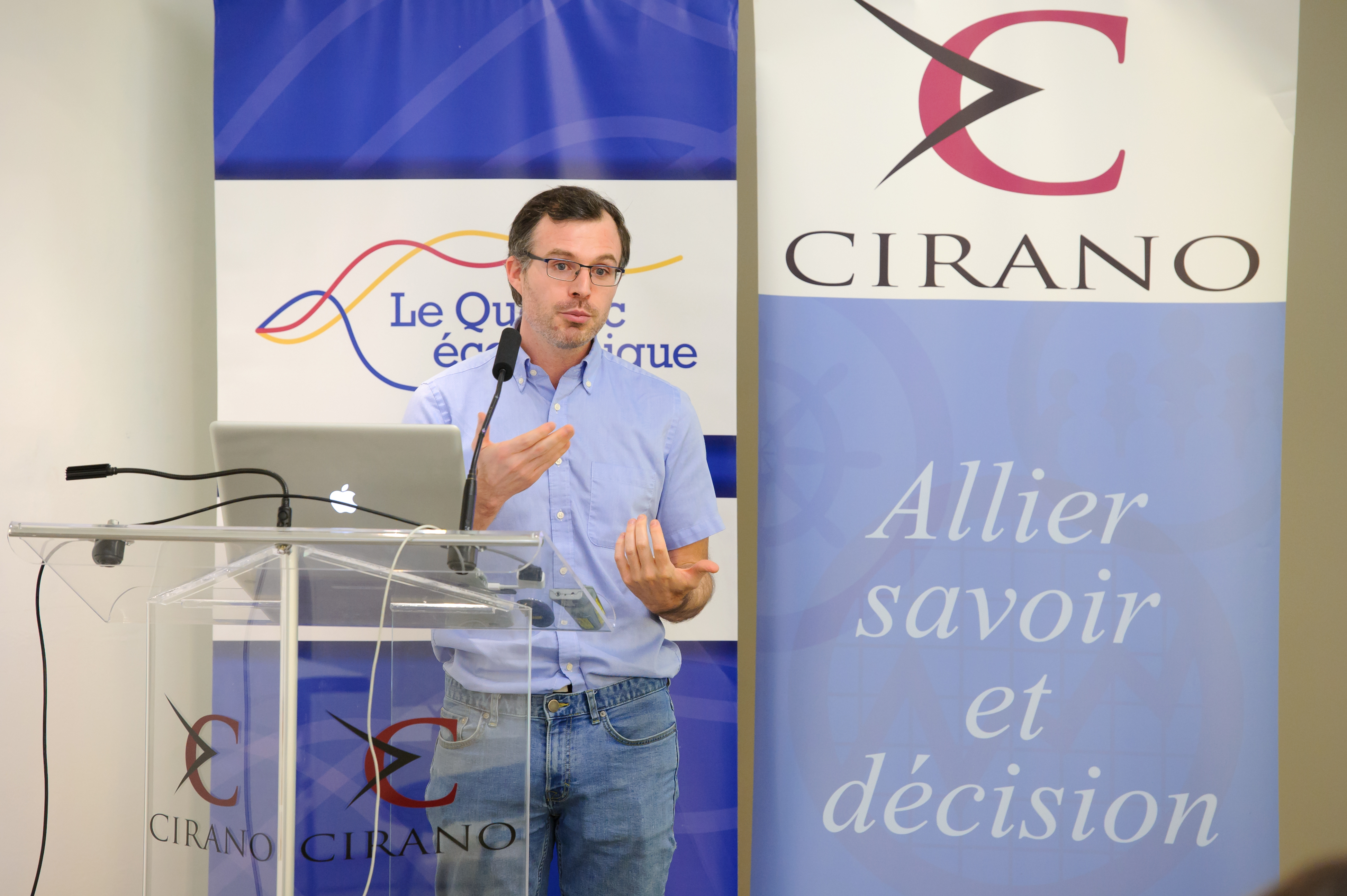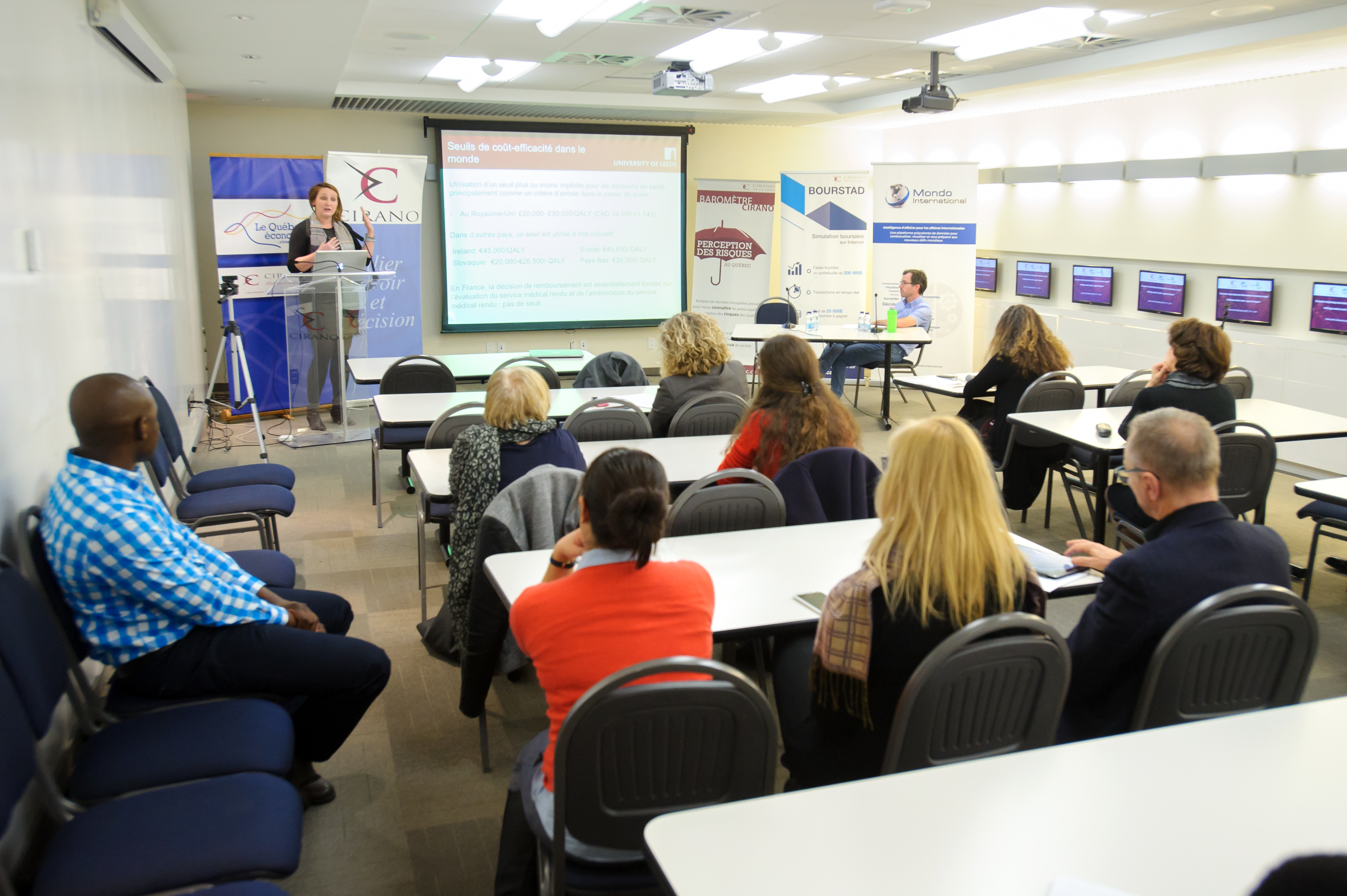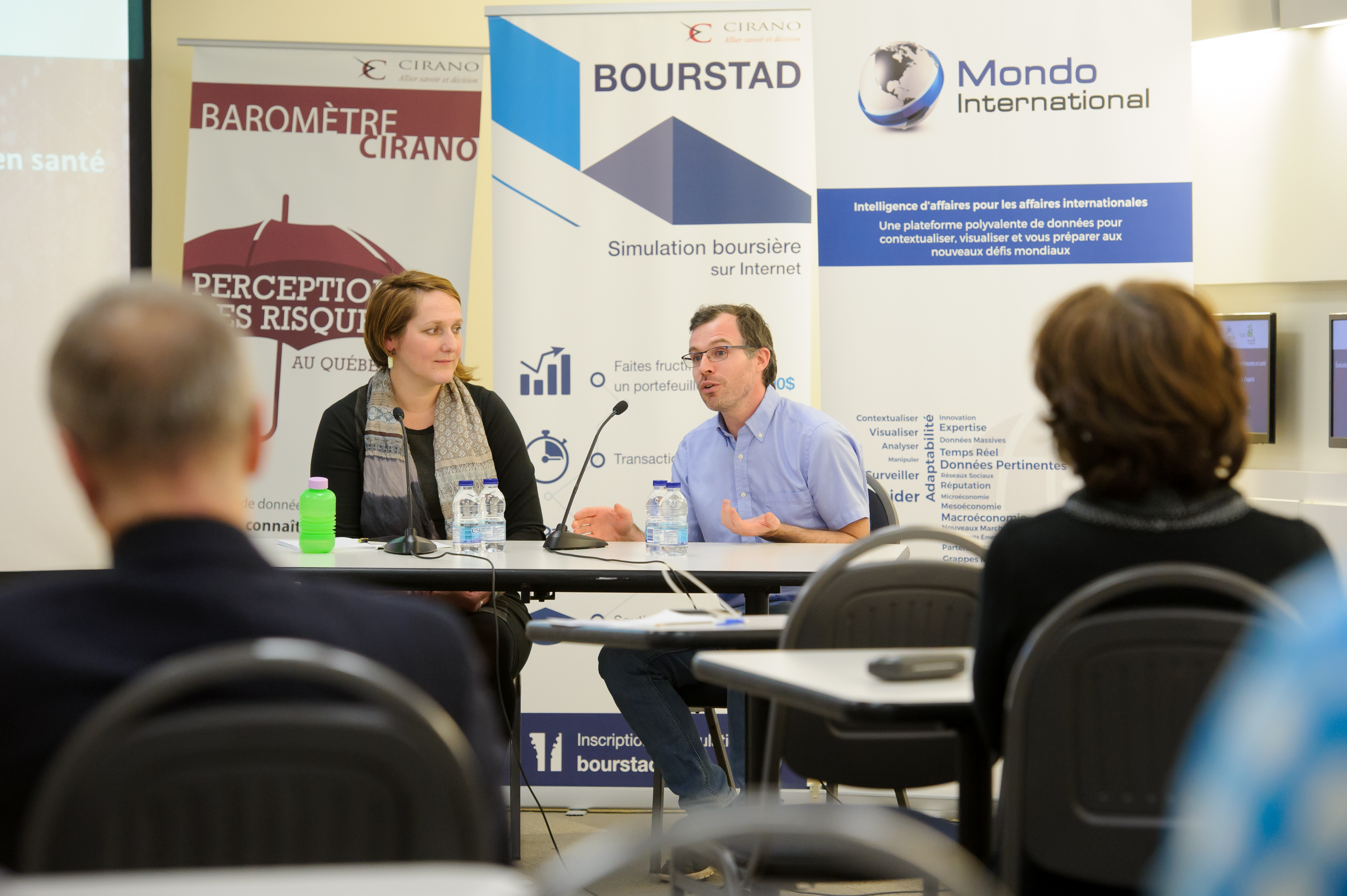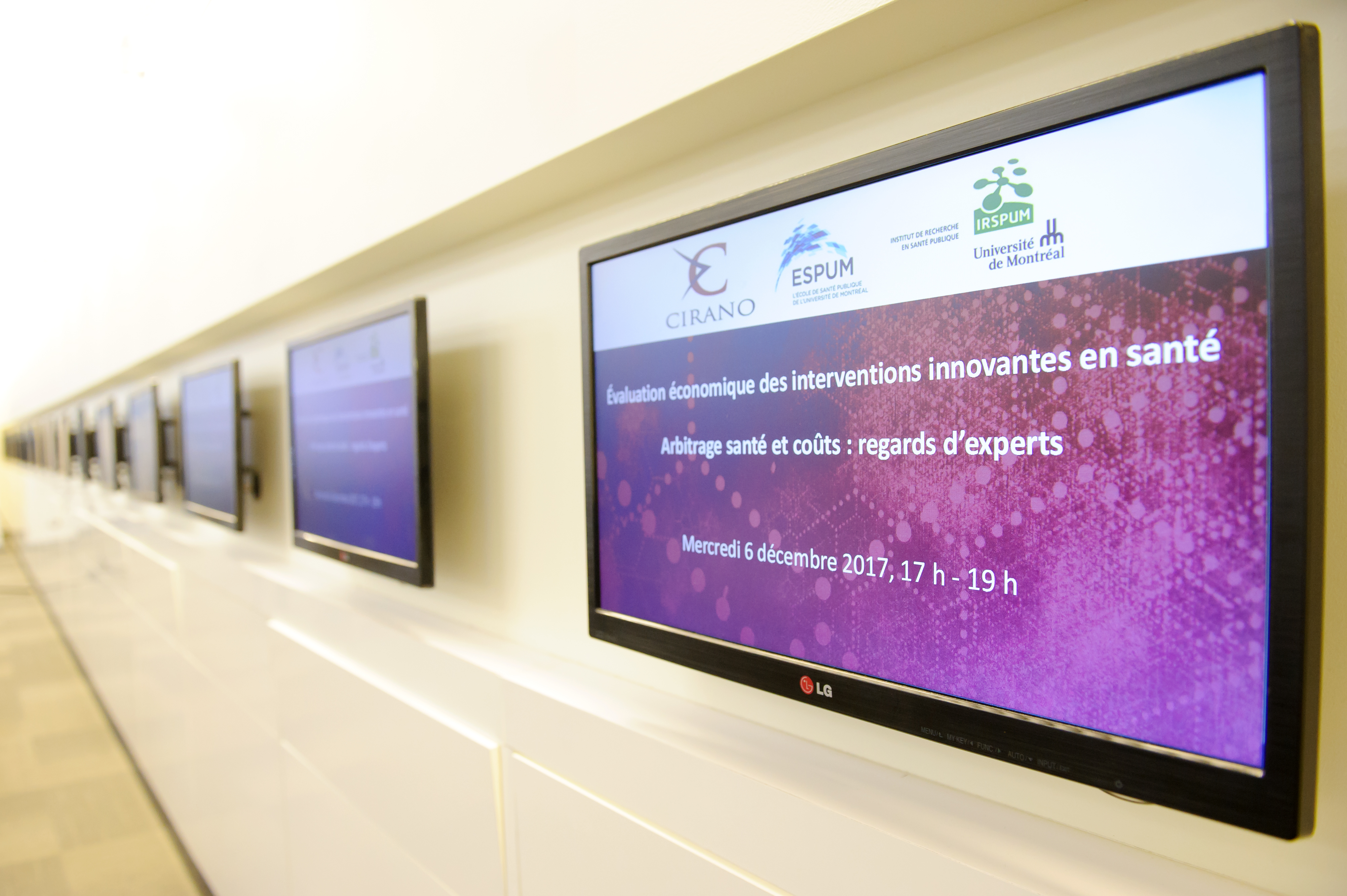Nathalie de Marcellis-Warin joined CIRANO in 2000 as a postdoctoral researcher and was appointed President and CEO in 2016, after serving as Vice-President from 2008 to 2016. Since 2011, she has led the CIRANO Barometer project on risk perception in Quebec, which annually collects data on Quebecers’ concerns regarding 47 major societal issues. She is also Head of the CIRANO Research Pole on the Socioeconomic Impacts of Digital Intelligence and Principal Investigator of the Innovation and Digital Transformation research theme.
She is a Full Professor in the Department of Mathematics and Industrial Engineering at Polytechnique Montréal, where she also serves as Academic Director of PolyFinances. In addition, she is a Visiting Scientist at the Harvard T.H. Chan School of Public Health and an Associate Researcher at the Institute for Data Valorization (IVADO).
She holds a PhD in Management Science (specializing in risk management and insurance) from the École normale supérieure de Cachan. Her research focuses on risk management and decision-making in contexts of risk and uncertainty, as well as the design and evaluation of public policies. Her work combines economic analysis, cost-benefit analysis, survey data analysis, and more recently, large-scale unstructured data analytics.
In 2008, she founded the RISQH network, a knowledge-sharing and awareness network dedicated to risk management, patient safety, and quality of care in healthcare institutions. She contributed to the development of the Montreal Declaration for a Responsible Development of Artificial Intelligence.
She serves as Scientific Director of the Measurement Tools, Monitoring and Surveys Division at the International Observatory on the Societal Impacts of AI and Digital Technologies (OBVIA). She is also co-founder of the International Francophone Network on Scientific Advice (RFICS).
At CIRANO, she leads and contributes to several large-scale research initiatives, notably the creation of an economic digital twin of the St. Lawrence–Great Lakes region (GVCdtLab), developed in collaboration with the federal government.
She has published numerous scientific articles, several books, and more than 40 reports for government and other organizations. She has delivered over one hundred conferences and is regularly invited to speak in the media.








